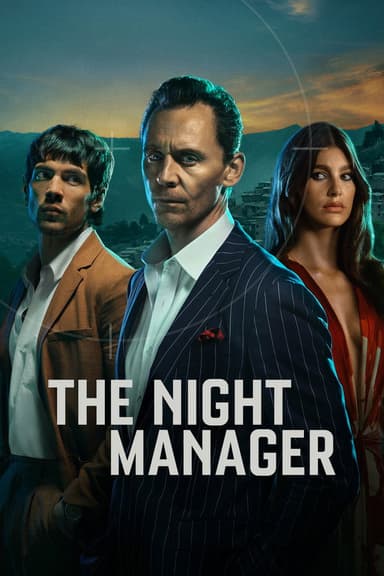
Fallen Angel
2007 • Drama
Fallen Angel is an ITV series broadcast on 11–13 March 2007 based on the Roth Trilogy of novels by Andrew Taylor. It tells the story of Rosie Byfield, a clergyman's daughter, who grows up to be a psychopathic killer. It has a unique narrative that moves backwards in time as it uncovers the layers of Rosie's past.
Why you should read the novel
Andrew Taylor’s novel, Fallen Angel, presents a deeply layered and thought-provoking narrative that goes far beyond the constraints of its televised adaptation. Readers are drawn into the mind of its complex protagonist, Judith, exploring the nuanced motives behind her darkness and psychological turmoil. The novel’s evocative prose and shifting perspectives create a richer, more immersive experience, offering insights that television simply cannot deliver.
With its intense moral ambiguity and the slow unfurling of secrets, the book demands the reader’s active engagement. Taylor masterfully constructs a story that is as much about a community haunted by its past as it is about individual guilt and innocence. As mysteries unravel across decades, you’ll find yourself piecing together the truth, fully engaged in a web of suspense.
Choosing the book rather than the TV series allows for a deeper connection to characters’ inner lives and motivations. Taylor’s lyrical language and deft exploration of themes such as redemption, sin, and the lasting impact of familial relationships ensure that every page is an invitation to reflect and discover, making the novel a far more satisfying and lasting experience.
Adaptation differences
One of the main differences between the Fallen Angel TV series and Andrew Taylor’s novel lies in the story’s structure and pacing. The TV adaptation unfolds chronologically, providing a straightforward timeline that’s easier to follow on screen. In contrast, the novel weaves its narrative backward through time, offering a more complex and rewarding puzzle for readers to decipher—deeply enhancing the mystery and suspense.
The characterizations in the book are also more intricate. On television, Judith is presented relatively simplistically; much of her inner turmoil and psychological depth is sacrificed for narrative clarity and time constraints. In the novel, Taylor offers nuanced glimpses into Judith’s inner conflict, providing motivation and understanding that the show cannot fully convey.
Some crucial subplots and supporting characters present in the book are either omitted or significantly condensed in the series. These omissions strip the story of some of its emotional texture and diminish the depth of the surrounding community, making the adaptation feel narrower and less immersive than the literary source.
Finally, the themes of faith, guilt, and redemption are explored in greater detail in the novel. Taylor’s writing allows for introspection and subtly layers the narrative with moral ambiguity, encouraging readers to question each character’s actions and motivations. The series, constrained by its format, often presents these themes more directly, limiting the opportunities for nuanced interpretation and personal engagement.
Fallen Angel inspired from
Fallen Angel
by Andrew Taylor




